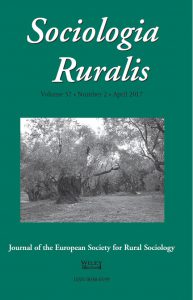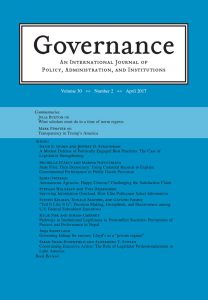A look beyond poverty – what role does economic support play in (re-)producing inequalities?

In countries of the global South, social relationships often function as channels for support essential for making a living. Studies that created a comprehensive overview of all forms of welfare benefits people have access to (for example Bevan 2004), acknowledged these forms of support as informal social protection. Informal as they do not follow a formal, written script and thus differ from the well-defined welfare provisions of governments. Instead, informal support is embedded in social relationships and can thus take many different forms, meanings, and functions in an individual’s life.
Policy-led research has paid a lot of attention to the efficiency of informal social protection. Hereby, informal support is mapped against the goals and purposes of government-provided welfare (for example, see Oduro et al, 2010). This influences how informal support is then defined, evaluated, and assessed. It may also explain why informal support is primarily understood in the context of poverty or marginalized communities. These perspectives offer important findings on the role informal support may play in sustaining livelihoods and responding to basic needs. Yet, they fail to account for the role that informal support may play in society at large.
Thus when looking beyond poverty – what role does informal support, especially economic support, play in (re-)producing inequalities?
I conducted a research study in Namibia to approach this question. Namibia has one of the most unequal societies in the world. Its society especially continues to be divided along lines of racial and ethnic identities, inherited from its apartheid history. This stresses the importance of not simply understanding support among the poor – but also how and to what extent it may travel across and shape lines of economic and social stratification. In this study, I particularly focus on individuals’ racial identity and education levels in the urban context, primarily Windhoek, Namibia’s capital. Education levels are important as they can reflect the rationale of Black Tax which draws on one’s economic success as ‘once you studied and found a job, you send the elevator back down (as in providing support) to fetch others’.
To obtain a fine-grained overview of the structures and meaning of economic support, I used a mixed-method approach to social network studies. Using both qualitative and quantitative elements, allows connecting patterns and meaning of the lived realities of support. Useful network metrics can measure the size of networks and thus the extent to which individuals engage in defined support practices. Questions as to what causes were behind provided support as well as what motivated them to do it, showing the various functions support can play in one’s life. Thereby, the study focuses on support practices that are currently taking of have been taken place in individuals’ lives.
My study finds that rather than breaking away with lines of social and economic stratification, informal support reproduces them in often subtle or hidden dynamics. At first, 83 percent of support reaches someone who is considered as being of the same racial identity from a provider’s perspective. This means that only 17 percent of support occurs across racial identities. When looking at those who hold the highest level of education (tertiary degrees), black Namibians have larger support networks (33 versus 27 activities on average) compared to their white educational peers. In addition, only one-third of support involves other black tertiary degree holders. This implies that about 70 percent of the support of black tertiary degree holders reaches others with lower education levels. For white tertiary degree holders, this only applies to half of their support practices.
There are also notable differences when looking at support that occurs among family members only. Overall, support networks with family members decline with education levels. This means that for higher educated Namibians, support networks increasingly involve contacts outside one’s family. For black tertiary degree holders, only about one-third of support involves family members who also hold a tertiary degree. Again, this differs from their white peers. Hereby, a majority (two-thirds) of support practices involve a family member with a tertiary degree. This indicates that black families may be subjected to greater inequalities within. Or said differently, they might have a greater spread and diversity of the economic positions across different family members.
Peer support in terms of education was less prominent in family support for black tertiary degree holders compared to their white peers. However, it is more notable for contacts outside their family. A little more than half (56 percent) of non-family contacts also hold a tertiary degree. For white tertiary degree holders, this is a little lower at 46 percent. This suggests that education seems to be a somewhat stronger marker of orientation for black Namibians when support concerns members outside their family; particularly when they achieved a higher degree. For example, for individuals who only hold a primary degree (primarily involving black Namibians), racial identity serves as a stronger marker of orientation: 87 percent of their non-family contacts involve others of the same racial identity. In comparison, this only applies to 37 of the contacts of white tertiary degree holders.
The reasons and motivations to support also differ, especially across race. The support network of a black tertiary degree holder titled ‘Becoming a good supporter to the family’ illustrates a narrative that captures a sense of necessity and reciprocity across generations (I also discuss this further in a related study). There is also often an underpinning rationale of basic needs that support caters to – be it school uniforms, proving shelter to a niece whose father is in prison, or money for lunch food. An element of reciprocity is mostly carried forward in expectations to enable the economic success of younger family members so they can become future supporters.
On the contrary, economic necessity is much less prominent in the support network of a white tertiary degree holder. Often support practices involve elements that are ‘nice to have’ or the ‘logical thing to do’ when it concerns the educational trajectory of a younger family member – that then however comes without the expectation of future reciprocity. In addition, support that travels across racial lines then involves creating economic incentives, maintaining work relationships, or simply not wasting used goods that are provided to black staff, including domestic and farm workers or gardeners.
Combined, the explored network structures and narratives illustrate how an understanding of informal social protection beyond a lens on poverty enables us to elicit dynamics that contribute to the reproduction of inequality. I illustrate that informal social protection does not just occur among the poor. I especially highlight that often support travels across economic stratification (here defined by education) – however, it does so within and less so across racial groups. This highlights the importance of understanding within-group practices as a response to a group’s position in society more broadly. In other terms, the economic marginalization experience by black Namibians appears to play a role in the ways in which those that climb the economic ladder provide support to those in their social orbit. Similarly, it shapes support practices of white Namibians that resemble the narratives of intergenerational support rather than economic deprivation.
More broadly, through this study, I illustrate the importance of interdisciplinary research in contexts of the global South; particularly those that combine economic and sociological perspectives. A view beyond disciplinary silos can challenge and break up conceptual spaces of the development paradigm and create new perspectives on social phenomena relevant to shaping inequality in non-Western contexts.
Sources:
Bevan, Philippa. 2004. ‘Conceptualising In/Security Regimes’. In Insecurity and Welfare Regimes in Asia, Africa and Latin America, edited by I. Gough and G. D. Wood, 88–120. Cambridge, U. K.: Cambridge University Press. http://opus.bath.ac.uk/10073/.
Oduro, Abena D. 2010. ‘Formal and Informal Social Protection in Sub-Saharan Africa’. Background Paper for the European Report on Development. http://erd.eui.eu/media/BackgroundPapers/Oduro%20-%20FORMAL%20AND%20INFORMAL%20SOCIAL%20PROTECTION.pdf.
Oppel, Annalena. 2021. ‘Normalizing Necessity? Support Networks and Racial Inequality in Namibia’. World Development 147 (November): 105649. https://doi.org/10.1016/j.worlddev.2021.105649.
———. 2022. ‘Patterns and Lived Realities: Exploring Informal Social Protection across Race and Education’. International Journal of Social Welfare, no. n/a. https://doi.org/10.1111/ijsw.12548.
Mhlongo, Niq, J Phehello Mofokeng, Dudu Busani-Dube, Primrose Mrwebi, Fred Khumalo, Clinton Chauke, Bhekisisa Mncube, and Lorraine Sithole. 2019. Black Tax: Burden or Ubuntu? Johannesburg: Jonathan Ball Publishers.





1754-9469/asset/society_affiliation_image.gif?v=1&s=9197a1a6ba8c381665ecbf311eae8aca348fe8aa)
